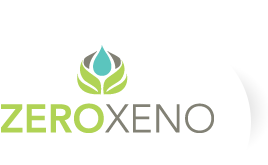Our products are proudly manufactured in Canada and are a product of Canada.
Breast Cancer
2020 Study - Xenoestrogens Linked to Breast Cancer
A 2020 study links several xenoestrogens, including bisphenol A (BPA), to breast cancer, polycystic ovary syndrome, uterine fibroids and other various reproductive disorders. The World Health Organization (WHO) predicts a 63.4% increase by 2040 in breast cancer rates. As of 2020, the incident rate of breast cancer, according to the American Cancer Society, is 1 in 8. The long term effects of endocrine disrupting chemicals (EDCs) is multigenerational and the effects of these hormone disruptors is currently underappreciated.
Cardamom Reduces Breast Cancer Tumors
A 2019 study reports that a naturally occuring antioxidant (cardamonin) found in the spice cardamom supresses and kills (apoptosis) breast cancer cells. Cardamom also contains DCM (diindolylmethane) and IC3 (indole-3-carbinol), compounds known to eradicate breast cancer cells and stimulate the immune system.
Artificial Colors Mimic Estrogen & Negatively Impact Hormones
A peer reviewed study notes that artificial colors yellow & tartrazine found in food and cosmetic colorings are xenoestrogens which mimic estrogen and are linked to breast cancer and liver disease.
Phytoestrogens Reverse Xenoestrogen Induced Breast Cancer
In a 2018 study scientists were able to reverse xenoestrogen induced breast cancer with kaempferol, a phytoestrogen found in broccoli, cabbage, kale, beans, tomatoes strawberries, grapes, raspberries and various other fruits and vegetables.
Estrogenic Activity in Underarm Deodorant
A 2014 study discovered fragrances in deodorant have the same estrogenic activity as parabens, both of which are linked to breast cancer.
Herbicide Glyphosate Linked to Breast Cancer
A 2013 study discovers the herbicide glyphosate has environmentally relevant estrogenic activity that links this xenoestrogen to breast cancer.
Curcumin Protects Against Breast Cancer Caused by Bisphenol A
A 2014 study reveals curcumin, the antioxidant naturally found in turmeric, protects against breast cancer caused by the xenoestrogen bisphenol A (BPA).
Curcumin Inhibits Breast Cancer
A peer reviewed study shows that the antioxidant curcumin found in turmeric inhibits tumor growth in breast cancer.
Environmental Estrogens, Cosmetics and Breast Cancer
A Science Direct abstract on the link between estrogenic chemicals in cosmetics and breast cancer.


